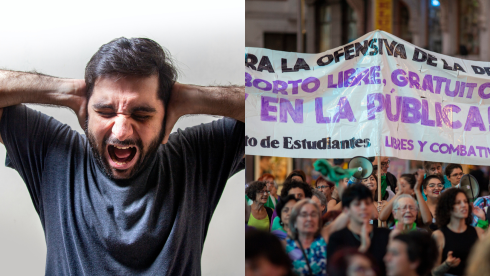A STUDY released by the Spanish Sociological Research Institute hit the headlines after stating 44% of Spanish men believe ‘women’s equality has gone so far that it is now discriminating against men’.

Photo: Usman Yousaf on Unsplash and Cordon Press
READ MORE: Equal España: Where does Spain really rank in the EU for gender equality?
While 32% of women agreed, the majority, 67%, believe inequality remains ‘very’ or ‘quite’ large.
In comparison, just 48% of men agreed with this statement.
Across the pond, some 47% of Britons say women’s equality is ‘sufficient’ and ‘that we have gone so far in promoting it that men are now discriminated against’.
But why do men feel disenfranchised?
Digging deeper into the data, we can see that they think women have better, or at least, equal opportunities in almost every aspect of life; from promotions at work to educational access.
However, when the survey asked women, they reported that they felt their opportunities were ‘worse’.
For instance, just 27% of men said women’s access to positions of political responsibility were ‘worse’ than men’s, compared to 47% of women.
READ MORE: Pioneering voices: who were Spain’s early suffragettes?
Responses like this follow recent advances in women’s rights in the country.
In 2005, then prime minister Jose Zapatero, introduced some of the world’s most advanced gender equality laws.
The move came after an Andalucian woman, Ana Orates was burnt alive in her own home by an abusive ex partner who she had spoken out against on television.
Since then, subsequent governments have also made strides towards equality.
Most recently, Pedro Sanchez’s left wing coalition introduced a new ‘Equality Law’ designed to create equal access to positions of economic and political power.
This, alongside other laws promoting equality for LGBTQ+ people, have sparked controversy across the country and ruffled feathers amongst the right wing.
Many men are – wrongly – seeing these laws as advantages not offered to them.
In fact, the so-called ‘discrimination’ many Spanish men claim to be facing is better described as the feeling of being threatened by the slow eradication of their privilege as men.
READ MORE: International Women’s Day: Celebrating the inspirational work of expat women in Spain
Women are not getting ‘more rights’ but solutions for the sexism that persists in modern society.
This becomes evident when we consider that almost 20% fewer men than women think inequality still exists in the country.
It seems that while laws and legislation are making it seem women have more rights than men, the lived experience for women is very different.
It is clear that Spanish women still experience high levels of sexism in their daily lives.
In my personal experience, I am still warned not to walk home alone at night, have been verbally abused on dating apps and been catcalled while on my own balcony.
Until women can live without fear, there is no doubt that inequality still exists.
Unfortunately, it is unlikely the sexism that remains in Spanish society will be eradicated by laws.
A much deeper social intervention is required to make meaningful change, which will not create the backlash this survey has uncovered.








